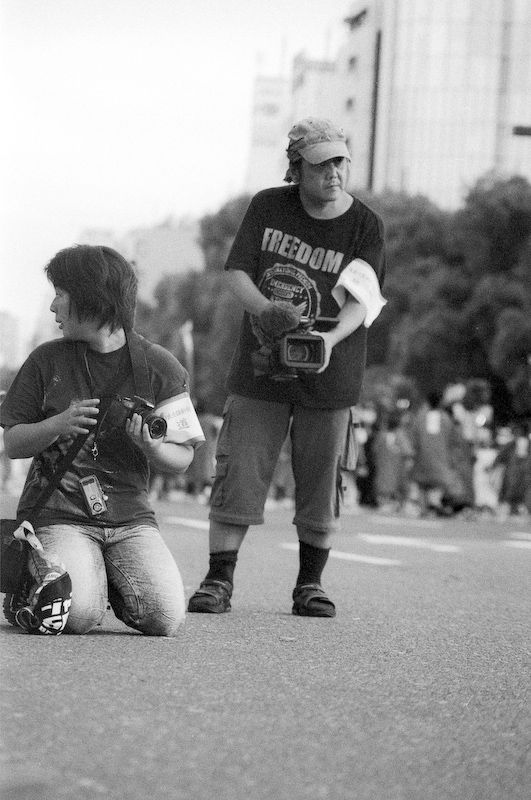
Unfortunately, not everything can be solved with small-angle scattering. Current affairs have led me to write this post, in which I try to highlight the magnitude of the surveillance situation in a few paragraphs. If you are not interested in political commentary, please be so kind as to skip this post and wait for the regular SAXS-related post due next Monday. It’s probably going to be about hard spheres.

While I tend to agree that scientists should generally focus on their research, we should be aware of the events outside our fields and (when appropriate) stand up and go “um…”. The recent events concerning the scope of the internet surveillance have evoked just such a reaction in me. The whole amount of information just sounds so ludicrous, so tin-foil-hat, that I would not have believed it to be true were it not for the response from the accused agencies.
As many of you are undoubtedly aware, the recent leaks by Edward Snowden have shown us (in bite-sized chunks) that a large portion of all communications passing over the internet and cell-phone infrastructure is being monitored and mined. This is not limited messages which are deemed publicly accessible such as Twitter and Facebook posts, but also phone records, private e-mails and one-to-one conversations (f.ex. on instant messaging apps). The Guardian reports that this information is temporarily stored and systematically mined for hints, links and clues to find and investigate people of interest, meaning that anything done on the internet can no longer be considered private (with privacy defined as having the power to control what information may become public knowledge).
The project came about partly through awarding of lucrative contracts to telecommunication companies willing to play ball with the GCHQ (British intelligence service), and partly through overreaching legislation. GCHQ subsequently plays along with the American, Canadian, Australian and New Zealand intelligence agencies in a collaborative program (UKUSA, also known as “Five Eyes”).
It hardly needs mentioning that such a pervasive monitoring tool is extremely powerful and dangerous, allowing for the quenching of discussions, free speech and opposing views in politics. GCHQ has also shown itself willing to tap such power for political purposes by extracting live information on G20 delegates during a summit (highlighting that even people who have “nothing to hide” still might need privacy). While this tool may not be problematic for the subjects of the current governments, but can you trust the government 10 years, 20 years or 50 years from now? The Dutch (and Germans) know from recent examples that, given the right rhetoric, silly people can get a lot of power (c.f. Geert Wilders). A frightening thought indeed.
So, what can we do? Firstly, we can raise awareness of the implications and scope of the program to friends and colleagues (which is my aim here). Secondly, we can help by donating to organisations promoting free speech and anonymous communication such as the Tor project, Wikileaks, the EFF and many more like it. Furthermore, we can support people who aim to inform the public irrespective of the cost (Snowden, Manning, Assange & co. but also Aaron Swartz who “leaked” ancient scientific papers), and we can support countries willing to support these people (bastions of freedom such as… Ecuador and China, c.q. Hong Kong which let E. Snowden leave for Moscow despite warnings from the US). There may be more we can do, but the internet is not the place to talk about such things*.
*) Just being cynical here, in case it was not clear.

Leave a Reply